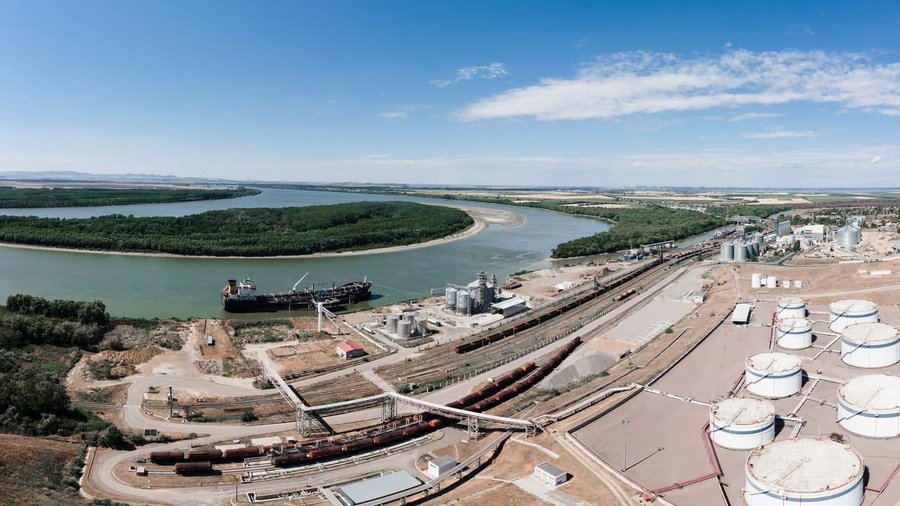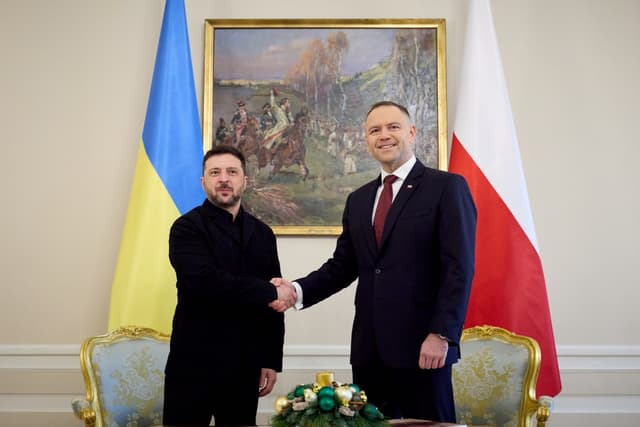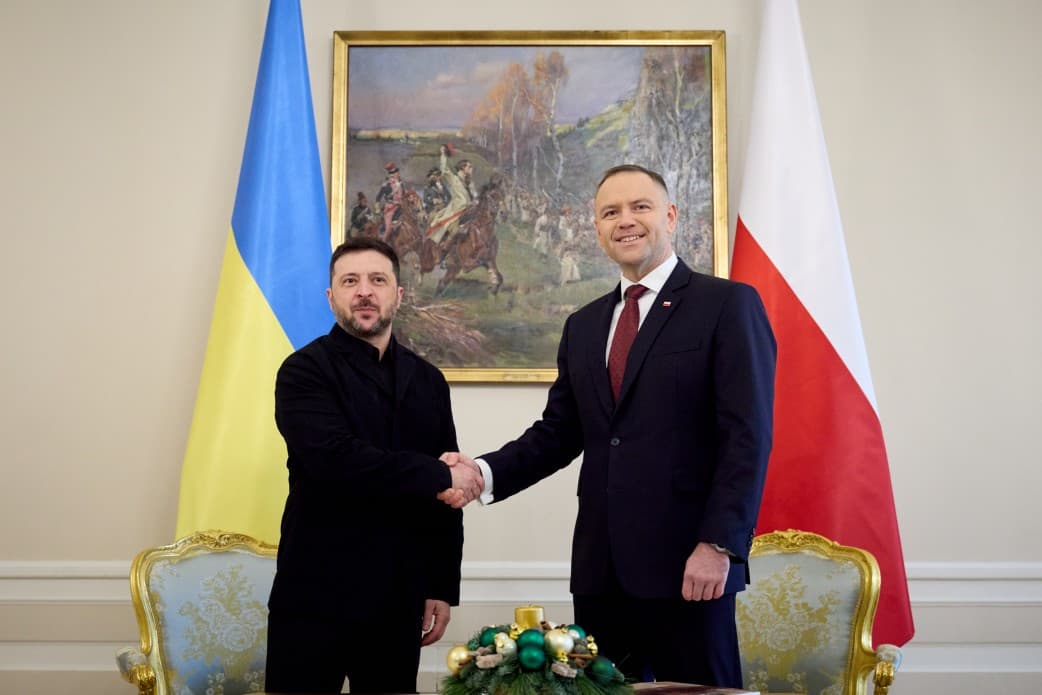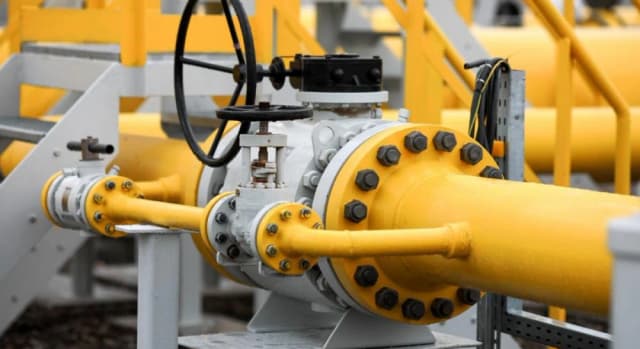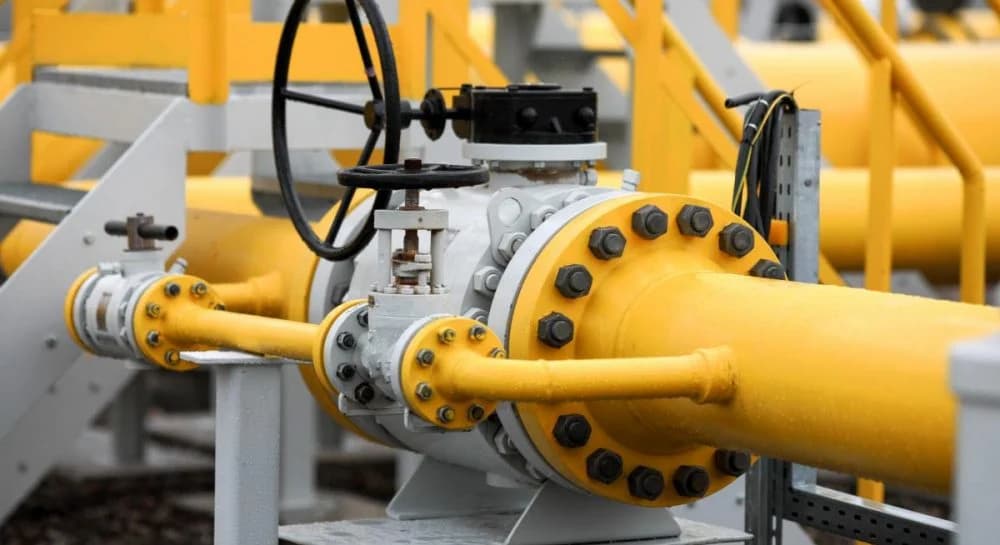Rediscover South America. Ukraine's diplomatic presence in the region, and how to improve it?

Yehor Yarosh, expert in U.S. politics, exclusively for Resurgam
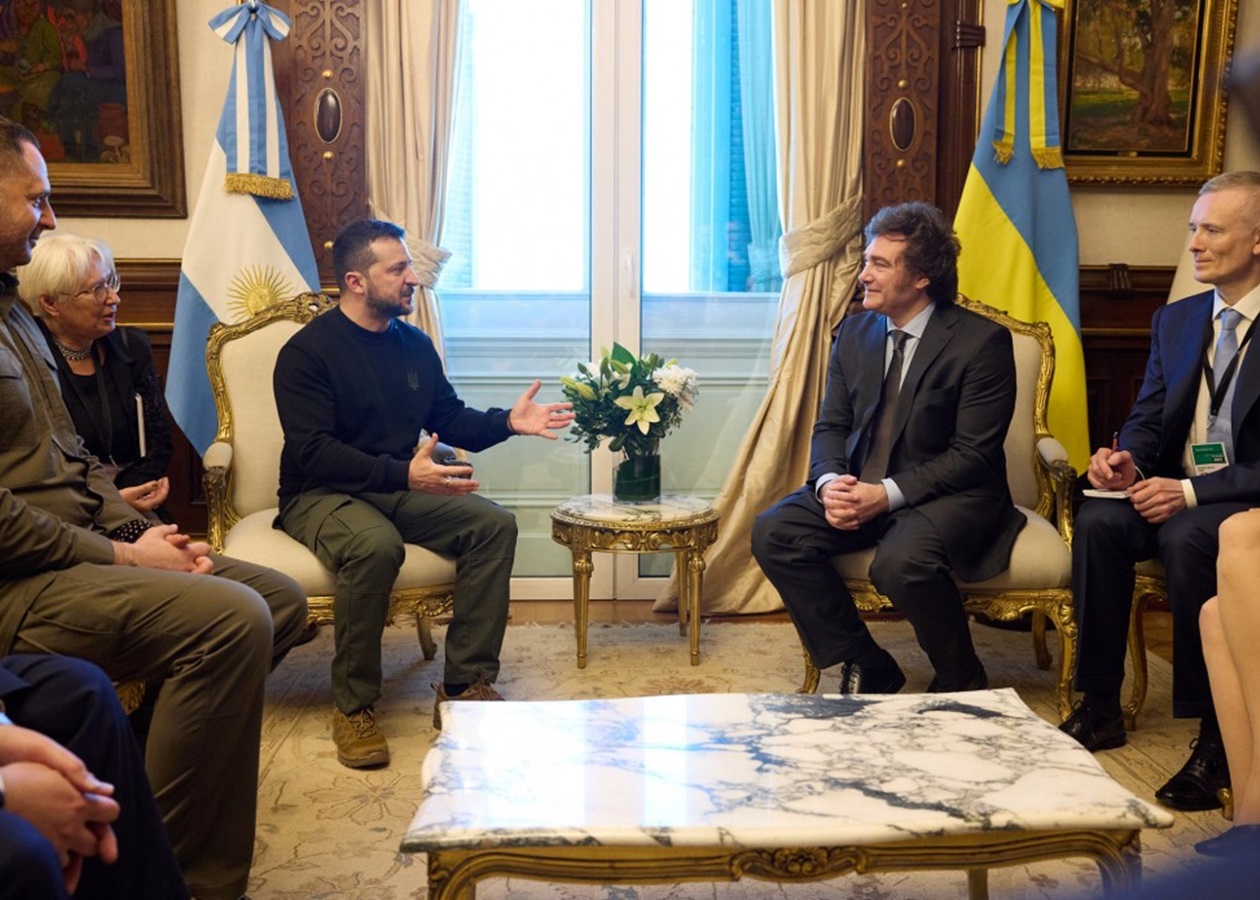 Photo: Reproduction X
Photo: Reproduction X
The potential of South America
Strengthening diplomatic ties with South America opens up a number of opportunities.
First, South America is a large market. We can talk not only about the potential export of a range of goods — from grain and oil to aircraft engines, IT services and energy equipment — but also about imports and cooperation in the development of lithium, copper and various other products.
For example, 55% of the world's reserves of lithium, one of the most critical metals of our time, are located in the Argentina-Chile-Bolivia triangle. There are also lithium deposits in Ukraine, but there is no industrial production in our country. Ukraine can offer an exchange of experience and specialists and develop joint projects, thus becoming one of the global suppliers, especially for Europe.
Secondly, in the context of the confrontation with Russia, Ukraine needs maximum international support. Ukraine is promoting a number of initiatives: the Crimean Platform, the Peace Formula, and the creation of special tribunals for Russian war criminals. Kyiv needs to engage South American countries in this direction.
The problem is that Moscow has a long-standing and deep influence on the populations and governments of South American countries. In particular, Venezuela, Cuba, Nicaragua, and Bolivia are open allies of Russia, while Brazil, as a regional leader, has a neutral-ambivalent position. The Kremlin actively finances its propaganda resources and tries to promote its own narratives in the region. For example, RT en Español has approximately 18 million followers on Facebook and systematically works with local journalists to discredit Ukraine and the West in general.
Thirdly, about a million Ukrainians live in South America. This is a powerful force that has found a home there at various periods in history. It is not just a “soft power” for influencing the governments of countries in the region, but also potential business partners and a multi-vector tool for strengthening Ukraine. Cooperation with the Ukrainian diaspora in South America is both a goal and a tool for other purposes.
Fourth, military cooperation. Some countries, like Brazil, Argentina, and Chile, have their own military-industrial complexes that specialise in making light arms, armoured vehicles, ammo, and basic aircraft. The Brazilian company Embraer is one of the world leaders in regional and military transport aviation, and its aircraft are already used by NATO countries. Argentina and Chile have developed industries in the fields of artillery, armoured vehicles and shipbuilding, which could be useful in cooperation.
Therefore, Ukraine needs to strengthen its diplomatic relations with South American countries. Some of the main countries for developing partnerships are democracies like Argentina and Chile.
 Lithium evaporation ponds in the Salar de Atacama area (characteristic turquoise ‘fields’). Sources: International Lithium Association and Geology for Investors review
Lithium evaporation ponds in the Salar de Atacama area (characteristic turquoise ‘fields’). Sources: International Lithium Association and Geology for Investors review
Relations with Argentina
Argentina was one of the first countries to recognise Ukraine's independence in 1921 and again in 1991. The country also has one of the largest Ukrainian diasporas, numbering 300,000-500,000 people.
Despite this, Ukraine has developed very weak relations with Argentina. Before the full-scale war, the last visit of the President of Ukraine to Argentina was in 1995, and the visit to Ukraine took place in 1998. The Ukrainian-Argentine Intergovernmental Commission on Trade and Economic Cooperation did not meet for 18 years, until 2023. And the agreement on military-technical cooperation, which was signed in 2013, has never been ratified.
Instead, Russia has been strengthening its influence in the country. The presidents of Argentina and Russia met repeatedly and signed a joint declaration in 2008. Argentina also became a producer and buyer of the Russian Sputnik V vaccine during the coronavirus pandemic. Therefore, Argentina's lack of support for Ukraine in 2014 is not surprising.
After the start of full-scale war in 2022, Ukraine's focus began to shift somewhat, but still slowly. The first contact between the two presidents took place only four months after the invasion began, when Alberto Fernández called Volodymyr Zelenskyy.
However, the negative result of such slow diplomacy was that the Latin American trade bloc MERCOSUR rejected Zelenskyy's request to address its members. Argentina and Brazil opposed the Ukrainian president's participation in the summit in Asunción. This was a clear indicator of diplomatic failure. The states maintained neutrality, but in practice tried to ‘sit on two chairs’: they supported Ukraine in the UN, but continued to cooperate with Russia.
Were the mistakes associated with weak diplomacy corrected? Partially. Zelenskyy's visit to Buenos Aires on 10 December 2023 was a good sign — not only for the inauguration ceremony of President Javier Milei, but also for meaningful negotiations with the new government. It was a positive sign, but without fruitful work, it is very difficult to overcome old problems. In 2025, Argentina did not support the UN resolution condemning Russia's aggression, citing the United States.
Information work and cultural diplomacy
Russia actively promotes its point of view thanks to its numerous Spanish-language channels, which Ukraine does not have. Moscow actively spread narratives about the ‘civil war’ in Donbas and the artificial creation of Ukraine, etc. The Kremlin also speculated on the painful topic of the Falkland (Malvinas) Islands for Argentinians. When Buenos Aires abstained during the UN vote on Crimea in 2014, the Argentine authorities justified themselves by saying that they did not want to set a precedent for their territorial claims.
The Russian state channels RT and Sputnik spread propaganda in Spanish throughout Latin America, when Ukraine did not have an equivalent resource to convey its position. Direct appeals from Ukrainian officials rarely reached the Argentine audience. Zelensky gave several interviews to the Latin American press and even addressed viewers during the Grammy Awards ceremony on a Spanish channel, but such opportunities for information were really rare.
The Ukrainian Embassy maintained social media pages and organised individual events, but at the beginning of the war, the potential of public diplomacy was not exploited. As a result, some Argentinians remained captive to stereotypes or simply disoriented about the causes and course of the war.
Over the past few years, the situation has improved somewhat. In April 2025, a delegation of human rights activists from Ukraine visited Buenos Aires, conducting educational events on Russian war crimes. Even earlier, in 2024, the Ukrainian embassy organised special screenings of documentaries about the war in a cinema in the capital. Importantly, during the event, it was announced that the first lawsuit based on the principle of universal jurisdiction had been filed in an Argentine court on behalf of a Ukrainian tortured by Russian occupants.
In other words, Ukraine has involved the Argentine justice system in the prosecution of Russia's crimes. These can be considered positive steps, but there is still much work to be done. It is necessary to increase the amount of content in Spanish, attract Argentine journalists to Ukraine, and continue cultural exchange.
Ukrainian diaspora in Argentina
We need to make use of the Ukrainian diaspora, which is one of the largest in the world – 300,000–500,000 people. Among them are active cultural and religious centres, including Prosvita, Plast, Vidrodzhennia, and a dozen others coordinated by the Ukrainian Central Representation.
On 25 February 2022, Ukrainians in Buenos Aires organised the first mass demonstration against Russian aggression in the city centre. In the following months, such actions became regular throughout the country: the diaspora collected humanitarian aid, held charity events, and joined media campaigns in support of Ukraine. Ukraine's mistake was that these initiatives were initially mostly spontaneous, without proper coordination from the state. Ukraine did not actively engage its own community abroad as a “soft power”.
The strength of the Ukrainian community can be seen in the 2023 elections in Argentina. On the eve of the elections, the Ukrainian Embassy and leading diaspora associations appealed to all major candidates to publicly support Ukraine. The result: right-wing Javier Milei, conservative Patricia Bullrich, and centrist Sergio Massa all posed for photos with signs reading “We are with Ukraine” alongside the Ukrainian ambassador and the head of the Ukrainian Central Representation.
Working with the diaspora is the best indicator of the positive change in Ukrainian diplomacy. Argentina has become the regional leader in terms of humanitarian aid to Ukraine, with over 105 tonnes of cargo sent with the assistance of the state agency White Helmets and the Ukrainian-Jewish community. This is an example of healthy and positive consolidation: the diaspora collected aid, Argentine businessman Enrique Piñeiro transported it free of charge to Poland on his plane, and from there the cargo went to Ukraine. The success of this and similar campaigns shows how effective cooperation with the community can be if it is competently coordinated.
However, the political potential of the diaspora has not been fully utilised due to the lack of a clear and well-thought-out strategy ‘from home’. This is understandable, as Ukraine has only now begun to actively work with the diaspora in Argentina.
Relations with Argentina after Javier Milei became a president
The election of Javier Milei as President of Argentina in 2023 was a bit of a ‘gift’ for Ukrainian diplomacy. Even before taking office, Milei stood out with his strong statements: on the day the invasion began, he came to parliament with a Ukrainian flag and declared that he would not ‘make deals with murderers — neither with Putin nor with Xi Jinping,’ and also criticised Western leaders for not being tough enough on the Kremlin. All this demonstrated a certain optimism and gave hope for a new ally in South America. However, in reality, not everything is as good as it may seem. The problem was not political will, but Argentina's real capabilities, which were somewhat overestimated. Indeed, during the first months of his term, Milei took several symbolic steps: Argentina joined the Ramstein format and announced its readiness to transfer two Russian-made Mi-17 helicopters to Ukraine and is even considering transferring old Super Étendard attack aircraft. This caused sharp dissatisfaction in Moscow, but at the same time, a discussion arose in Argentina itself about the advisability of such assistance.
As a result, Milei's representatives publicly denied the possibility of supplying weapons to Ukraine, citing the difficult economic situation and lack of resources. The Ukrainian side probably rushed to publicise the potential deliveries, which put Buenos Aires in an awkward position vis-à-vis its citizens and traditional partners: China and Brazil. The mistake was realised in time – further negotiations on armaments are continuing behind closed doors to avoid politicising this sensitive issue.
Cooperation with the new Argentine administration has been very successful so far, which is also the result of learning from mistakes. Argentina has joined a number of Ukrainian initiatives. Work with the diaspora, as well as the president's personal visit to Argentina, have created favourable conditions for the development of diplomacy over the past twenty years. However, a new challenge has emerged in the form of transforming declared support into concrete action. Argentina has become a platform and the first attempt to revitalise diplomacy in this region.
Despite economic difficulties, Argentina has a developed military-industrial complex that could potentially become Ukraine's partner in defence cooperation. First and foremost, it is worth noting the company Fábrica Argentina de Aviones (FAdeA), which manufactures and modernises military aircraft (in particular, the IA-63 Pampa fighter jet, transport aircraft and training complexes). Ukraine could use this area for joint programmes on aircraft repair and modernisation, as well as in training projects. Armoured vehicles and small arms are also relevant. The Argentine army operates modernised German TAM (Tanque Argentino Mediano) tanks and has its own armoured personnel carrier development programmes. Ukraine could join armoured vehicle modernisation programmes and exchange technologies in the fields of optics, unmanned control systems and ammunition. Cooperation in the field of aircraft engines and space technologies is also interesting. Argentina participates in regional space programmes (through CONAE), in particular in the production of satellites and observation systems. Ukrainian companies with significant experience in the rocket and space industry (e.g. Pivdenmash) could find common ground for joint projects in the field of satellite reconnaissance, which has both civilian and defence applications.

Cooperation opportunities
Now we need to focus on action. First, economic cooperation. The most important step will be the creation of a joint Ukrainian-Argentinian enterprise for the extraction and processing of lithium, as Argentina has some of the largest deposits in the world, and Ukraine has the technology and specialists that can be used to develop these deposits. The partner should be YPF Litio, a state-owned company that already operates in this field, and in Ukraine, Ukrlitivydobuvannya should be involved in forming the technological unit.
At the same time, agricultural cooperation should be intensified: Ukrainian manufacturers of agricultural machinery, like Elvorti and Lozivski Machines, could supply equipment and launch joint production lines, while biotechnology companies such as Enzym could set up joint laboratories for biofertilisers.
Argentina, as a global agricultural giant, will also be interested in cooperating with Ukrainian scientists in water resource management, and the University of Buenos Aires or the University of Cordoba could become partners for educational and applied programmes.
An important area will be the resumption of aviation cooperation: the state-owned company FAdeA could enter into a partnership with Antonov to modernise aircraft and create joint projects in the military-technical sphere. The potential here is great; the main thing is to use it.
At the business level, Ukraine should focus on influential entrepreneurs: Enrique Piñeiro, who has already organised humanitarian flights, should be granted the status of Honorary Consul of Ukraine, and Marcelo Minlin, owner of Pampa Energía, should be involved in joint energy projects. In the agricultural sector, Gustavo Grobocopatel, a Ukrainian by origin and owner of Los Grobo, could become a key ally. His business could be combined with Ukrainian agricultural start-ups to enter global markets. For coordination purposes, it is necessary to establish a Ukrainian-Argentine Chamber of Commerce in Buenos Aires and launch the Ukraine-Argentina Recovery Fund, which will attract Argentine investments in the reconstruction of Ukraine.
Second, political action. President Javier Milei, who has already declared his support for Ukraine, should be involved in symbolic gestures, such as joint statements on Russian aggression as a manifestation of colonialism, which fits organically into the Argentine discourse on the Falkland Islands.
 Argentinian President Javier Milei (left) and Volodymyr Zelensky (right) during the peace summit in Switzerland on 15-16 June 2024. Source: Office of the President of Ukraine
Argentinian President Javier Milei (left) and Volodymyr Zelensky (right) during the peace summit in Switzerland on 15-16 June 2024. Source: Office of the President of Ukraine
Chile – an outpost of diplomatic support for Ukraine
Ukraine's relations with Chile face the same problems as those with Argentina. The main mistakes are slow and weak diplomatic presence, insufficient cultural exchange, and poor understanding of the local context.
After February 2022, no separate ambassador was appointed to Santiago – the duties were performed by the ambassador to neighbouring Argentina. This problem already demonstrates the weak development of relations with Chile. It was only on 27 October 2023 that President Zelensky appointed a new Ukrainian ambassador to Chile – Yuriy Dudin.
President Gabriel Boric, a young centre-left leader who entered the office in March 2022, took a firm stand in support of Ukraine in the early days of the invasion: ‘Russia has chosen war... Chile condemns the invasion of Ukraine, the violation of its sovereignty and the illegal use of force.’ However, the first presidential dialogue did not take place until July 2022, four months after the full-scale invasion.
These mistakes were partially corrected, as the presidents held two video conferences (July 2022 and March 2023) and met in person on the sidelines of the UN General Assembly in New York in September 2023. During that meeting, Zelensky thanked Chile for its consistent support at the UN level and expressed interest in deepening cooperation with all of Latin America. However, as of 2025, visits at the highest level have not been made, which remains an ‘unfinished business’ of bilateral diplomacy.
Ukraine has not fully exploited Chile's potential as a partner. Despite Santiago's willingness to join in addressing the consequences of the war, clear steps have been postponed. It was only in June 2024 that President Boric publicly announced at the Peace Summit in Switzerland that Chile would join in the humanitarian demining of Ukraine after the end of the war. Unfortunately, real assistance was made dependent on a future ceasefire. Ukraine apparently did not insist on Chile's more active participation before the end of hostilities — for example, in training deminers or providing equipment at the moment. Therefore, the chance to receive immediate assistance was lost.
Chile remained an outpost of diplomatic support. In January 2025, the Chilean Senate passed a resolution demanding the restoration of Ukraine's territorial integrity and calling for increased humanitarian aid.
Information work and cultural diplomacy
In the context of cultural and information exchange, the problems are similar for all of Latin America, namely the lack of Spanish-language content. Ukraine lost to Russia in the battle for Spanish-speaking listeners.
An example of poor public relations was the situation surrounding Volodymyr Zelensky's address to the Chilean Congress. This speech was only organised a year after the invasion began. On 4 April 2023, the Chilean parliament held a special session for the Ukrainian president's online address. However, representatives of the ruling coalition from the left, in particular deputies from the Communist Party and some parties of the Broad Action Front, demonstratively did not attend Zelensky's speech. The deputies expressed the opinion that Chile should not think about ‘supporting one side of the conflict,’ but rather about ‘what else we can do for peace.’ This shows that Ukrainian diplomacy did not do the preparatory work with this political camp.
It was a mistake to assume that there was unanimity on Ukraine within Boric's progressive coalition. It would have been worthwhile to convey Zelensky's messages to the left-wing parties in advance via the embassy or informal channels – about the colonial nature of Russia's aggression and about human rights, which are close to the left-wing discourse. Instead, a scandal erupted: the media wrote about the communists' demarche, which partially shifted the focus from Zelensky's speech itself to internal Chilean differences.
All this is part of a low cultural presence. After 24 February 2022, the situation improved somewhat thanks to the efforts of enthusiasts: an exhibition entitled ‘My Home is Ukraine’ was held in Santiago, organised jointly by the Ukrainian-Chilean corporation “Malva” and the community ‘Ukrainians in Chile’. These events introduced Chileans to Ukrainian culture and the problems of war. The Ukrainian Embassy also supported the Ukrainian Flavours charity fairs, where anyone could taste Ukrainian dishes, with the money going to humanitarian needs. However, these events were isolated, covering mainly the capital and a limited circle of interested parties.
At a national level, Ukraine's cultural diplomacy did not help to improve relations. There were no large-scale screenings of Ukrainian films, tours by major ensembles or long-term information campaigns in Chile. This inertia can be partly explained by the war and lack of resources, but it is still an oversight. As a result, broad sections of Chilean society learned about Ukraine only from news about the war, rather than through an understanding of historical or cultural parallels. This made it easier for Russian propaganda to spread myths about Ukraine.
In 2023, when Latin America became one of the strategic directions of diplomacy, the situation began to improve somewhat. Ukrainian leaders began to regularly address Spanish-speaking audiences, with Zelensky giving interviews in Spanish (CNN en Español, etc.) and posting on his official Twitter account in Spanish. Ukraine began to promote its narratives more actively: in particular, in May 2023, it invited a group of Latin American journalists and opinion leaders to visit Ukraine so that they could see the consequences of Russian aggression with their own eyes. The Ukrainian delegation, together with the Ukrainian ambassador to Chile, Yuriy Dudin, is meeting with representatives of the Chilean government to discuss the return of Ukrainian children abducted by Russia. Source: Official website of the President of Ukraine
The Ukrainian delegation, together with the Ukrainian ambassador to Chile, Yuriy Dudin, is meeting with representatives of the Chilean government to discuss the return of Ukrainian children abducted by Russia. Source: Official website of the President of Ukraine
Ukrainian diaspora in Chile
The Ukrainian diaspora in Chile is small, numbering around a thousand people. This is probably why it has been ignored and why work with it has been unsystematic. No coordination centre or even a platform for communication has been created. The most that has been done with the diaspora is a small cultural event for Independence Day and or so.
And this despite the fact that the small diaspora was really active. From acts of solidarity and pickets in front of the Russian embassy to charity fairs and exhibitions. Thanks to public lobbying, an interparliamentary friendship group with Ukraine was created in the Chilean parliament (in both chambers) back in April-May 2022.
The situation has improved somewhat over time. For example, in August 2023, with the support of First Lady Olena Zelenska, a ‘Ukrainian book corner’ was opened in the National Library of Chile — a symbolic gesture made possible with the participation of the diaspora. But there should be more such positive developments, because the diaspora, however small it may be, is a natural distributor of culture, support and Ukrainian ideas.
Despite the mentioned failures, Chile has become one of Ukraine's most consistent Latin American partners. Santiago condemned Russia's aggression and voted for all resolutions in support of Ukraine. And Chileans' trust rating of Zelensky is one of the highest in the world (64% positive – third place among foreign leaders). This means that Chile has taken steps to establish good diplomatic relations. Now, Ukraine needs to strengthen its cooperation with the country.
Opportunities for cooperation
In economic terms, the key task is to create a joint cluster in the field of critical metals and battery technologies. Chile is one of the world leaders in copper and lithium mining, while Ukraine has some of the largest lithium deposits in Europe but lacks a developed industrial base for its processing.
This opens up the possibility of creating a consortium between Ukrainian structures such as ''Ukrlitivydobuvannya'' and the National Academy of Sciences of Ukraine on the one hand, and Chilean companies Codelco, SQM and CORFO on the other. Within the framework of such a consortium, it would be worthwhile to launch a joint cathode-anode production hub in Ukraine to supply finished materials to the EU market, while opening scientific laboratories in Antofagasta and Kyiv for R&D in the field of batteries and black mass processing.
At the same time, cooperation in the field of green energy should be developed. Ukraine can get access to Chile's experience in hydrogen projects in the Atacama Desert, while offering its own solutions for the modernisation of energy networks and cyber security.
At the diplomatic level, it is worth focusing on long-term institutional consolidation of cooperation. A permanent embassy in Santiago with economic and scientific advisers, an annual Ukraine-Chile intergovernmental commission with a broad agenda (economy, energy, critical metals, Antarctica, digital security) and regular parliamentary exchanges are needed.
Antarctic cooperation should become a special area of diplomacy. Ukraine and Chile both have their own polar stations. Chile also has a strategic logistics base in Punta Arenas. Using this region as a hub for Ukrainian expeditions will reduce the cost and speed up the work of our Akademik Vernadsky station. At the same time, joint scientific programmes could be launched with the Chilean Antarctic Institute in the fields of climatology, biology and renewable energy. Such steps will not only consolidate Ukraine's position in the field of Antarctic diplomacy, but also raise its image as a serious partner in global scientific projects.
In the military-security sphere, cooperation with Chile should be developed in two areas: the defence industry and humanitarian demining. The agreement on military-technical cooperation needs to be updated, involving state-owned companies FAMAE and ASMAR in joint projects with "Antonov", "Motor Sich" and "Ukroboronprom" in the field of repair and modernisation of equipment, as well as the development of maritime and aviation platforms.
It is also worth creating a programme of joint training in the field of cyber defence, as Chile has its own government cyber defence centre (CSIRT Gobierno de Chile), which could become a partner for Ukraine's Special Communications and Information Protection Service.
In terms of humanitarian demining, it is necessary to move from promises to help ‘after the war’ to concrete actions first: training sappers, supplying engineering equipment and remote sensors, and deploying Chilean instructors in partnership with Ukrainian units, in the best case scenario. Such a set of actions will allow cooperation with Chile to be elevated to the status of a long-term strategic partnership.
 The Ukrainian delegation at a meeting with Chilean Foreign Minister Alberto van Klaveren on 17 May 2024. Source: Ministry of Defence of Ukraine
The Ukrainian delegation at a meeting with Chilean Foreign Minister Alberto van Klaveren on 17 May 2024. Source: Ministry of Defence of Ukraine
Summary
Despite some positive steps in recent years, Ukrainian diplomacy in South America is still in its development stage and has significant unused potential. The region, which encompasses dozens of countries with diverse economic, political, and cultural characteristics, could become an important factor for Ukraine in three dimensions: economic, political, and security. Economically, South America is a market for critical metals (lithium, copper), agricultural products, energy and military-industrial technologies, where Ukraine can find partners for investments, joint ventures and scientific programmes. Politically, the region carries weight in international organisations (UN, MERCOSUR, CELAC), and its support in voting for Ukrainian resolutions or participation in the Crimean Platform or peace summits increases the global legitimacy of Ukraine's position.
In terms of security, South America can provide cooperation in the fields of aviation, armoured vehicles, cyber defence, space technology and even peacekeeping missions.
At the same time, the main problem is the institutional weakness of Ukrainian diplomacy: delayed contacts at the highest level, lack of a systematic cultural policy and communication with the local population, insufficient coordination with the Ukrainian diaspora. Russia, on the contrary, has invested for years in propaganda, political ties, and symbolic gestures, in particular by exploiting the region's historical traumas. This has created a situation where even allied countries are not always ready to translate their declarative support for Ukraine into concrete steps.
The examples of Argentina and Chile show that the situation can change. In Argentina, the election of Javier Milei has opened a new window of opportunity, but it needs to be filled with smart projects in the military-technical and economic spheres. In Chile, which has consistently supported Ukraine, it is necessary to move from symbolic gestures to institutionalised cooperation in energy, Antarctica, the defence industry and humanitarian demining.
In general, Ukraine needs to ‘reopen South America’ — meaning, to overcome the inertia of past decades and transform the region into a new frontier for its foreign policy. This requires a constant diplomatic presence, cultural expansion, and the creation of joint economic and security programmes. Only in this way will Ukraine be able to counterbalance Moscow's influence, strengthen its own position in the world, and open up new opportunities for the country's development.
 Buenos Aires, Argentina. 25 February 2022. Protesters wave Ukrainian flags during a demonstration in front of the Russian embassy. Source: photo: Luciano González / Noticias Argentinas
Buenos Aires, Argentina. 25 February 2022. Protesters wave Ukrainian flags during a demonstration in front of the Russian embassy. Source: photo: Luciano González / Noticias Argentinas

Yehor Yarosh, expert in U.S. politics, exclusively for Resurgam
You may be interested
